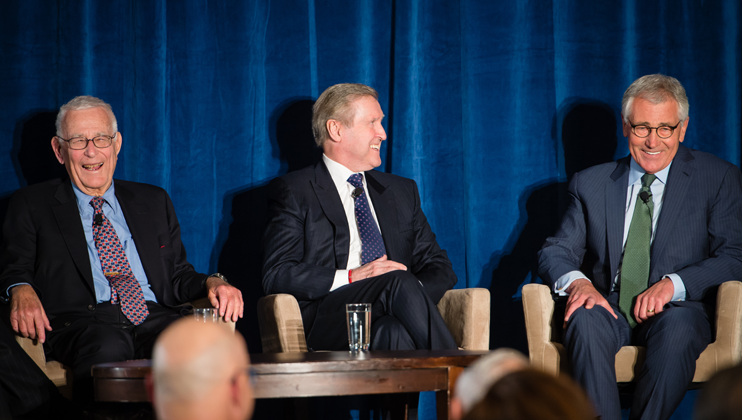Monday, January 11, 2016 | 5:00 PM EST - 6:30 PM EST
Omni Shoreham Hotel |, Washington, DC
We began our 50th Anniversary celebrations with the first in our Leaders Speak series: Defense Secretaries Chuck Hagel, William S. Cohen, William J. Perry, and Harold Brown, in conversation with National Committee President Stephen A. Orlins, reflected on experiences and lessons learned during their tenure. The secretaries also provided their views on the future of the U.S.-China security relationship, discussing cross-strait relations, the risk of conflict in the South China Sea, and how to deal with North Korea’s nuclear weapons program, among many other topics.
This program was part of a series of events celebrating the National Committee’s 50th Anniversary. For more information about other 50th Anniversary programs, please click here.
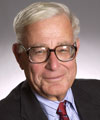
Harold Brown
Harold Brown was nominated by President Jimmy Carter to be Secretary of Defense in January 1977, a position in which he served until January 1981.
Dr. Brown is now a counselor and trustee at CSIS, the Center for Strategic and International Studies. From 1984 to 1992, he was chairman of the Foreign Policy Institute of the Johns Hopkins University Paul H. Nitze School of Advanced International Studies and from 1981 to 1984, he was distinguished visiting professor at the Nitze School. He is president emeritus and life trustee of the California Institute of Technology, trustee emeritus of the RAND Corporation, and a member of the North America Group of the Trilateral Commission.
Born in New York City on September 19, 1927, Dr. Brown graduated from Columbia University with an A.B. degree in 1945, an A.M. degree in 1946, and a Ph.D. in physics in 1949. He was a lecturer in physics at Columbia University, the Stevens Institute of Technology, and the University of California (1947-1952); and group leader, division leader, and later director of the Radiation Laboratory at Livermore, University of California (1952-1961). Dr. Brown was a member of the Polaris Steering Committee (1956-1958), the Air Force Scientific Advisory Board (1956-1961), and consultant to, and then member of, the President’s Science Advisory Committee (1958-1961). He was senior science advisor at the Conference on the Discontinuance of Nuclear Tests (1958-1959) and a delegate to the Strategic Arms Limitations Talks in Helsinki, Vienna, and Geneva from 1969 to 1977.
Before his service as secretary of defense, Dr. Brown was director of defense research and engineering (1961-1965), secretary of the Air Force (1965-1969), and president of the California Institute of Technology (1969-1977). Among his many honors, Dr. Brown was awarded the Presidential Medal of Freedom in 1981 and the Fermi Award in 1993. He is the author of Thinking about National Security: Defense and Foreign Policy in a Dangerous World (Westview, 1983), The Strategic Defense Initiative: Shield or Snare? (Westview, 1987), and Star Spangled Security (Brookings, 2012).
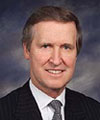
William S. Cohen
William S. Cohen was selected by President Bill Clinton to be the 20th Secretary of Defense. At the time of his appointment, it was the first time in modern U.S. history that a president chose an elected official from the other party to be a cabinet member.
Secretary Cohen spent 31 years in U.S. public service in positions that include mayor of Bangor, Maine; member of Congress in the House of Representatives (1973-1979) and the Senate (1979-1997); and finally Secretary of Defense (1997-2001). In the Senate he served in leadership positions on the Special Committee on Aging, as well as the Armed Services and Governmental Affairs Committees. It was shortly after being elected to the Senate that he made his first visit to China in 1978 as part of a Congressional delegation.
Secretary Cohen is currently chairman and chief executive officer of The Cohen Group. He also serves on the corporate board of CBS and as a board member of the US-China Business Council and US-India Business Council. In addition, he is an advisor to the mayor of the Tianjin Municipal Government and an honorary professor at Nankai University.
Born in Bangor, Maine, Secretary Cohen obtained his B.A. in Latin from Bowdoin College in 1962 and a law degree from Boston University in 1965. He has authored or co-authored twelve books, including five works of non-fiction, five novels, and two volumes of poetry.
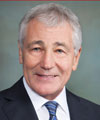
Chuck Hagel
Chuck Hagel was the 24th Secretary of Defense, serving from February 2013 to February 2015. He is the only Vietnam veteran and the first enlisted combat veteran to serve as secretary of defense. He also served two terms in the United States Senate (1997-2009) representing the state of Nebraska.
Some of Secretary Hagel’s current commitments include serving on the board of trustees of RAND; advisory boards of Deutsche Bank America and Corsair Capital; and the board of directors of the American Security Project. He is a senior advisor to Gallup and to the McCarthy Group, a distinguished statesman at the Atlantic Council, and a distinguished executive-in-residence at Georgetown University.
Previously, Secretary Hagel served on the boards of the Chevron Corporation and the Zurich Holding Company of America, was a distinguished professor at Georgetown University, chairman of the Atlantic Council and the United States of America Vietnam War Commemoration Advisory Committee, and co-chairman of both the President’s Intelligence Advisory Board and the Vietnam Veterans Memorial Fund Corporate Council. He served as a member of the Secretary of Defense’s Policy Board, Secretary of Energy’s Blue Ribbon Commission on the Future of Nuclear Power, Public Broadcasting Service (PBS) Board of Directors, and the Systemic Risk Council.
Prior to his election to the U.S. Senate, Secretary Hagel was president of McCarthy & Company, an investment banking firm in Omaha, Nebraska. In the mid-1980s, he co-founded VANGUARD Cellular Systems, Inc., a publicly traded corporation. He was president and CEO of the World USO, Private Sector Council, and COO of the 1990 Economic Summit of Industrialized Nations (G-7 Summit). Secretary Hagel also served as deputy administrator of the Veterans Administration under President Ronald Reagan and deputy commissioner general of the 1982 World’s Fair.
He is the author of the book, America: Our Next Chapter (Ecco, 2008) and was the subject of a book by Charlyne Berens entitled Chuck Hagel: Moving Forward (Bison Books, 2013). He is a graduate of the University of Nebraska at Omaha.
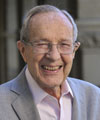
William Perry
William Perry, was the 19th Secretary of Defense, serving from February 1994 to January 1997. An expert in U.S. foreign policy, national security, and arms control, Dr. Perry is currently the Michael and Barbara Berberian Professor (emeritus) at Stanford University. He is also a senior fellow at the university’s Freeman Spogli Institute and the Hoover Institution, and was the co-director of its Center of International Security and Cooperation. He serves as director of the Preventive Defense Project.
Dr. Perry previously served as deputy secretary of defense (1993-1994) and as undersecretary of defense for research and engineering (1977-1981).
He is currently on the Defense Policy Board, International Security Advisory Board, and Secretary of Energy Advisory Board. He is on the board of directors of Covant, Fabrinet, LGS Bell Labs Innovations, and several emerging high-tech companies. Previous business experience includes running a laboratory for General Telephone and Electronics (1954-1964), founder and president of ESL Inc. (1964-1977), executive vice-president of Hambrecht & Quist Inc. (1981-1985), and founder and chairman of Technology Strategies & Alliances (1985-1993). He is a member of the National Academy of Engineering and a fellow of the American Academy of Arts and Sciences.
From 1946 to 1947, Dr. Perry was in the Army Corps of Engineers, and served in the Army during the occupation of Japan. He joined the Reserve Officer Training Corps in 1948 and was a second lieutenant in the Army Reserves (1950-1955). He has received dozens of awards: among them the Presidential Medal of Freedom (1997), Knight Commander of the British Empire (1998), and Department of Defense Distinguished Service Medal (1980 and 1981), and decorations from ten countries.
Dr. Perry received a B.S. and M.S. from Stanford University and a Ph.D. from Pennsylvania State University, all in mathematics.
